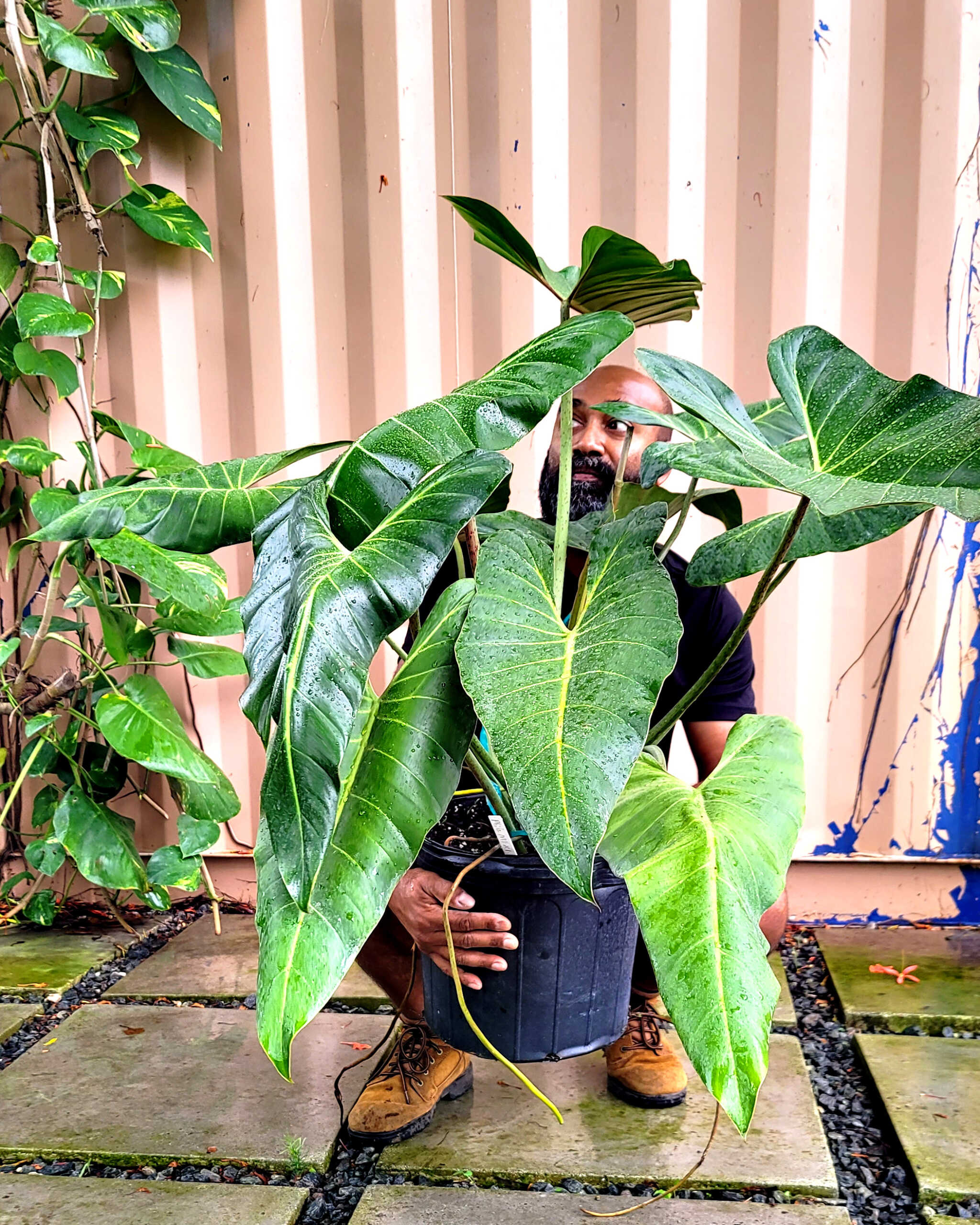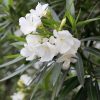Description
Superb is an Understatement with this Rare PhilodendronPhilodendron bernardopazii is a tropical perennial species belonging to the Araceae family. This plant is notable for its large, shiny, heart-shaped leaves that exhibit a glossy green hue, contributing to a lush, jungle-like aesthetic. It’s endemic to the Brazilian state of Espírito Santo, where it thrives in subtropical or tropical moist lowland forests. Philodendron bernardopazii flourishes under indirect bright light and in well-drained soil. Its ability to climb or trail also provides versatility in display, either in hanging baskets or on supportive structures. This species, however, is considered rare, making it a prized possession among plant enthusiasts.Caring for your Philodendron SuperbumPhilodendron bernardopazii is a captivating addition to any plant collection with its glossy, heart-shaped leaves and lush tropical feel. However, to keep this Brazilian native in top form, proper care is required.LightPhilodendron bernardopazii thrives in bright, indirect light. Direct sunlight can scorch the leaves, leaving unsightly burn marks. If you’re growing this plant indoors, placing it near a north or east-facing window is ideal. For south or west-facing windows, consider diffusing the light with sheer curtains or moving the plant further into the room to avoid harsh rays.If the plant gets too little light, you may notice slow growth and smaller leaf size. In the case of leggy stems or excessively long spaces between leaves, it may be a sign that the plant needs more light.TemperatureLike most philodendrons, the bernardopazii prefers warm temperatures. Ideally, this plant should be kept in an environment where the temperature ranges from 65°F (18°C) to 80°F (27°C). It doesn’t tolerate frost and should be moved indoors or covered if cold temperatures are expected.HumidityHumidity is another crucial factor. Philodendron bernardopazii, as a rainforest plant, loves a humid environment. Regular misting, a pebble tray filled with water, or a room humidifier can help maintain high humidity. Kitchens and bathrooms often have higher humidity, making them suitable places for these plants.WaterPhilodendron bernardopazii prefers consistently moist but not waterlogged soil. Overwatering can lead to root rot, a common problem for many houseplants. Let the top inch of the soil dry out between waterings to avoid this.FertilizerAs for feeding, a balanced, water-soluble houseplant fertilizer can be applied once a month during the growing season (spring and summer). It’s best to dilute the fertilizer to half the recommended strength to prevent overfertilization, which can lead to salt build-up and leaf burn.SoilThe ideal soil for Philodendron bernardopazii is a well-draining mix. A blend of peat, perlite, and compost is a good option. The plant should be repotted every 2-3 years or when it outgrows its current pot. When repotting, choose a container with adequate drainage holes to prevent waterlogging.PruningPruning can help maintain the size and shape of your Philodendron bernardopazii. Remove dead or yellowing leaves at the base of the stem using sharp, clean shears. This not only improves the plant’s appearance but also promotes healthier growth.PropagationPropagation of Philodendron bernardopazii can be done through stem cuttings. Choose a healthy stem and make a cut just below a leaf node (where the leaf attaches to the stem). Place the cutting in a jar of water and wait for roots to develop, which usually takes a few weeks. Once a good root system is established, the cutting can be planted in a well-draining soil mix.Pests and DiseasesPhilodendron bernardopazii is generally hardy but can be affected by common houseplant pests like mealybugs, aphids, and spider mites. Regularly inspect your plant and treat any infestation early with insecticidal soap or a mixture of water and dish soap.Common diseases include root rot from overwatering and leaf spot from fungal or bacterial infections. Avoid overwatering and ensure the plant has good air circulation to prevent these issues.





